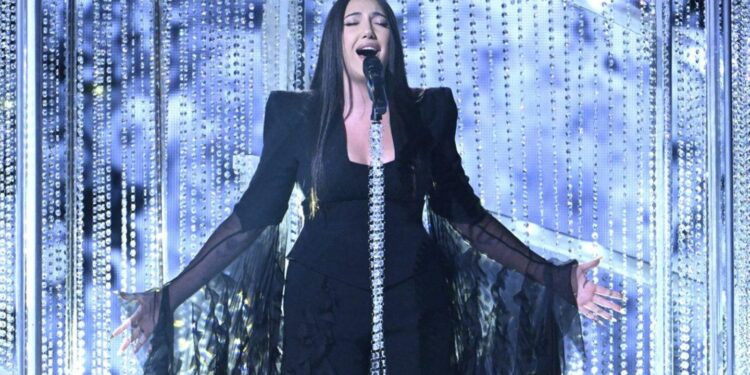Switzerland’s Eurovision Conundrum: Harmonizing Music with Political Neutrality
With the eagerly awaited Eurovision Song Contest on the horizon, Switzerland is in the limelight‚ÄĒnot only for its vibrant cultural legacy but also for its steadfast dedication to neutrality. This year poses a unique challenge: can this cherished European music event uphold its non-political essence amidst rising geopolitical tensions? As nationalism surges and the ramifications of the Ukraine crisis linger, the intersection of music and politics has never been more evident. As Switzerland prepares to host, we reflect on whether enchanting tunes and breathtaking performances can eclipse political discord or if they are inextricably linked in today‚Äôs global landscape. This article explores the complexities of hosting Eurovision in a neutral nation while striving to minimize political influences during such a significant occasion.
The Neutrality Challenge: Balancing Politics While Hosting Eurovision
Renowned for its past commitment to neutrality,Switzerland faces an intriguing challenge as it gears up for Eurovision. In an atmosphere where musical expression often carries implicit political messages, finding harmony between celebration and political commentary is essential. Artists from various backgrounds are likely to weave their national narratives into their performances, raising concerns about potential conflicts that could compromise the festival’s spirit.Swiss officials must navigate these waters carefully to ensure that this event acts as a unifying force rather than one that deepens divisions.
To mitigate politically charged incidents during the contest, organizers might implement several proactive strategies:
- Explicit Guidelines: Establishing clear rules regarding political expressions during performances and speeches.
- Civic Dialogues: Facilitating discussions centered on music’s role within society aimed at promoting constructive conversations without overshadowing festivities.
- Cultural Emphasis: Encouraging entries that celebrate cultural diversity while steering clear of overtly political themes.
This thoughtful strategy aims to preserve Eurovision‚Äôs core essence‚ÄĒtransforming it into a lively celebration of music and culture while recognizing‚ÄĒand managing‚ÄĒthe complex political realities surrounding it.
Uniting Through Music: How Eurovision Can Bridge Political Gaps
The annual Eurovision Song Contest presents an eclectic array of cultures and musical genres that ideally transcend borders‚ÄĒand even more importantly‚ÄĒpolitical divides. However, against this backdrop lies modern Europe’s intricacies where divisions can seep into what should be a jubilant occasion celebrating unity. With Switzerland as this year’s host nation, there exists an extraordinary prospect to reinforce neutrality by reminding participants and audiences alike that art possesses the power to connect rather than separate. This year’s contest could serve as a vital platform illustrating how music fosters dialog among nations while encouraging them momentarily set aside their differences for shared enjoyment through competition.
To effectively nurture this spirit of togetherness, organizers may adopt strategies focused on inclusivity and mutual respect such as:
- Cultural Collaborations: Pairing artists from different countries for joint performances.
- Themes Promoting Harmony: Highlighting songs with messages advocating peace and understanding across cultures.
- Cultural Exchange Initiatives: Offering side events designed to educate attendees about various cultures represented at the contest.
The execution of these initiatives would not only enhance attendees’ experiences but also reaffirm Eurovision‚Äôs enduring mission‚ÄĒto cultivate community bonds amidst geopolitical challenges‚Äô noise. By showcasing how music can harmonize diverse voices together,Eurovison may remind us all about celebrating collective joy even when faced with discordant realities around us.
Creative Strategies: Ensuring Political Neutrality at Eurovision
Aiming for a politically neutral environment during Switzerland’s hosting requires innovative approaches emphasizing inclusivity alongside musical celebration.
A pivotal strategy, could involve establishing an self-reliant advisory board comprising representatives from various cultural backgrounds ensuring balanced perspectives guide decision-making processes throughout planning stages.
This committee would prioritize diversity promotion without favoring any specific political affiliations during events.
Additionally utilizing technology, like live audience voting systems or interactive platforms encourages engagement devoid of bias allowing fans solely connect through their passion for music.
An additional effective tactic involves creating themed performance categories focusing on global concepts like love or resilience.
This initiative could be further enhanced by implementing actions such as :
- Hosting pre-contest festivals featuring local talent enabling cultural exchanges free from politicized narratives .
- Encouraging participating countries showcase original works reflecting unique landscapes promoting harmony messages .
- Establishing strict conduct codes performers commentators ensuring focus remains firmly rooted artistic expression over socio-political matters .
To illustrate these themes better , here is table outlining thematic categories musicians might explore :
Theme Possible Focus Love Beyond Borders Romantic connections transcending nations Unity Amid Diversity Celebrating varied cultures Hope & Resilience Overcoming obstacles via melody Future Prospects: The Evolution of Eurovision in Switzerland
As we approach the much-anticipated 2024 edition ,Switzerland stands poised at pivotal juncture . The nation’s long-standing tradition regarding neutrality faces scrutiny given increasing intersections between culture & politics looming large over world-renowned competition . While event planners strive emphasize artistic integrity alongside international camaraderie ,realities surrounding geopolitical tensions cannot simply be ignored .
Ultimately success maintaining apolitical stance amidst global disputes hinges upon balancing enthusiasm exhibited by diverse artists against sensitivities inherent within respective home countries involved . As contestants prepare take center stage ,Switzerland’s role extends beyond merely showcasing talent ;it serves gauge how cultural platforms navigate increasingly intricate landscape shaped by contemporary issues .
















